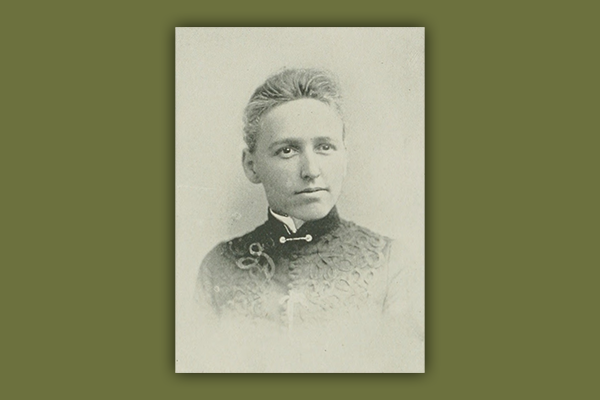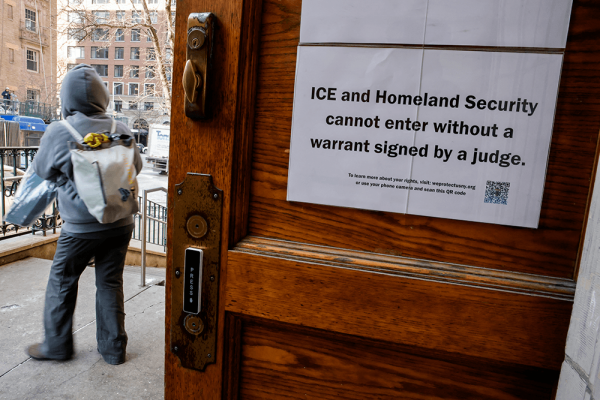Proximity. That word has been rolling around in my thoughts since I attended a conversation between Brené Brown and Deray McKesson at a packed Riverside Church in New York City on Feb. 1. Moderated by the church’s senior minister, Rev. Dr. Amy Butler, the talk — “The Courage to Show Up” — was inspired by an August 2016 Twitter exchange between the popular author and anti-shame advocate (Brown) and the racial justice activist (McKesson).
While the two had previously spoken, this was their first meeting in person — one arranged by Riverside, the church’s executive minister of communications Rev. Rachel Johnson, said.
“Riverside staff saw the [2016] Twitter exchange online and thought it would be a powerful event to see in person where the two could expand beyond the character limits of Twitter,” she said.
Although neither McKesson nor Brown addressed their faith, Brown has spoken publicly in the past about returning to church after a 20-year absence. And kicking off the “Race, Faith and Community” convocation in Louisville three years ago, McKesson highlighted Jesus’ radical roots.
“Jesus was a protestor,” he said. “It hurt us when the black church didn’t show up for us. The Jesus I learned to love would have been there.”
At Riverside, McKesson drew a distinction between the terms “ally” and “accomplice.” An ally holds herself at a safe distance from the fight for justice, he said. What turns her into an accomplice is proximity: proximity to the fight and/or to those who suffer oppression and/or injustice.
Of course, even proximity to a person doesn’t always lead to activism. And proximity to an injustice doesn’t always lead to relationship.
Rev. Dr. Amy Butler, moderator of the conversation, said she had a personal awakening about the difference in these terms as the mother of an African American child.
“I credit my daughter with shattering my naïveté about race,” she told me after TCTSU.
“[I was thinking] ’We’ll just love her and everything will be fine.’ … But race is a huge construct that seeps into every part of our lives, and I can’t ignore the fact that my daughter faces racism every day. It’s made me confront [racism] in new ways that are felt very deeply.”
Butler said she didn’t give much thought to the unique challenges her child might face before she became a mother. Nor did I. Having grown up in a lily-white small town, I was ignorant of my own white biases until I became a mother to a black child, and the unique proximity of motherhood is what caused me to face my own racial prejudice when I was in my early twenties.
But while proximity can awaken us to our own prejudice and privilege, the fact that it took proximity for me to face my own complicity can elicit pushback. I asked Butler about her experience with this.
“We need to feel uncomfortable and confront our privilege, and it hurts,” she said.
Brené Brown referenced this as well, asking the Riverside audience, “How do we help people see what’s been invisible to them, when it will cause so much pain?”
The answer, she said, is to “build our own capacity for discomfort.”
Even as mothers who’ve carried children in our wombs. Even as adoptive parents who have raised children that other parents have relinquished for adoption. We need to embrace our discomfort and let it change us.
“In this moment, there are a lot of people in love with the idea of resistance more than the work of resistance,” McKesson said.
And truly, transformation is tough work. It’s work that begins with the person in the mirror. Even three decades after I began my own journey of transformation, it still begins there every day.
As I transform, if I were to choose a description for myself, I’d choose “co-conspirator” — one who “acts in harmony” with others “toward a common end.”
The common end I want to pursue with is making the world a better, safer, more just place — not only for my loved ones, but for my neighbors near and far.
Got something to say about what you're reading? We value your feedback!







